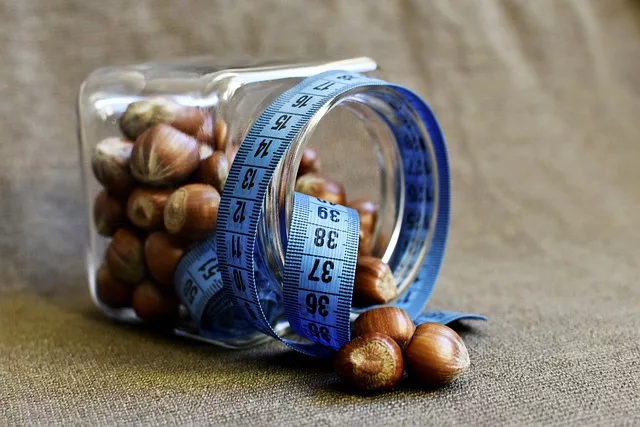Green tea has gained popularity as a potential aid for weight loss. Its natural properties and unique compounds have led to claims of increased metabolism, fat burning, and appetite suppression. This article aims to explore the potential benefits of green tea for weight loss, examining the evidence behind these claims and discussing factors that may influence its effectiveness.
The Power of Green Tea: Understanding its Composition
Green tea is derived from the Camellia sinensis plant and contains various compounds that contribute to its potential weight loss benefits. These include:
- Catechins: Green tea is rich in antioxidants called catechins, with epigallocatechin gallate (EGCG) being the most abundant and well-studied. Catechins are believed to have metabolism-boosting properties and play a role in weight management. They can help increase energy expenditure and promote fat oxidation, contributing to weight loss efforts.
- Caffeine: Green tea naturally contains caffeine, although in smaller amounts compared to coffee. Caffeine is a stimulant that can increase energy expenditure, enhance fat oxidation, and temporarily suppress appetite. It can provide a modest metabolic boost and contribute to the thermogenic effects of green tea.
How Green Tea May Aid Weight Loss
A. Increased Metabolism: Catechins in green tea are thought to stimulate thermogenesis, the process by which the body produces heat and burns calories. The combination of catechins and caffeine in green tea may enhance metabolic rate, leading to increased calorie burning.
B. Fat Oxidation: Green tea catechins, particularly EGCG, have been associated with increased fat oxidation, which may contribute to weight loss. Fat oxidation refers to the body’s ability to break down stored fat and use it as a source of energy.
C. Appetite Suppression: Green tea may help reduce appetite and food cravings, potentially aiding portion control and calorie intake. The catechins in green tea can interact with certain brain chemicals involved in appetite regulation, leading to feelings of fullness.
The Role of Green Tea in Weight Loss: What the Science Says
Several studies have suggested a positive association between green tea consumption and weight loss or weight management. Some research indicates that green tea extract or catechin supplementation may lead to modest reductions in body weight and waist circumference.
However, the results from the studies on green tea and weight loss have been mixed, with some showing significant effects and others indicating minimal impact. Variations in study design, participant characteristics, green tea dosage, and duration may contribute to the variability in results.
Considerations and Limitations
- Individual Differences: The effectiveness of green tea for weight loss may vary among individuals due to factors such as genetics, lifestyle, overall diet, and exercise habits. Some people may be more responsive to the effects of green tea than others.
- Calorie Balance: Green tea alone is unlikely to produce significant weight loss if not combined with a calorie-controlled diet and regular physical activity. It should be viewed as a complementary addition to an overall healthy lifestyle.
- Caffeine Sensitivity: Green tea contains caffeine, which may affect individuals differently. People who are sensitive to caffeine or have certain health conditions should monitor their intake and consider opting for decaffeinated green tea.
Incorporating Green Tea Safely and Effectively
Green tea works best as part of a comprehensive weight loss plan that includes a balanced diet, portion control, regular exercise, and overall healthy habits. Aim for two to three cups of green tea per day to reap potential benefits. Be mindful of the caffeine content and adjust consumption accordingly.
Choose high-quality, organic green tea to ensure maximum catechin content. Brew green tea properly to extract the desired compounds and avoid excessive bitterness.
Green tea shows promise as a potential aid for weight loss due to its catechin and caffeine content. While the evidence supporting its effectiveness is mixed, incorporating green tea as part of a balanced lifestyle that includes a calorie-controlled diet and regular physical activity may provide additional support for weight management. Individual differences, overall diet, and lifestyle factors play significant roles in determining its impact. Remember, sustainable weight loss requires a comprehensive approach, and green tea should be viewed as a complementary addition rather than a standalone solution.
Image by Mirko Stödter from Pixabay
Weight Management
-

Debunking Food Myths For Weight Loss: Separating Fact from Fiction
When it comes to weight loss, there are numerous myths and misconceptions surrounding food. These myths can hinder progress and lead to ineffective or unsustainable strategies. This article aims to debunk common myths around food and weight loss, providing clarity and highlighting evidence-based approaches to achieving healthy and sustainable weight loss. Myth #1: Carbs Make…
-

Green Tea for Weight Loss: Why It May Work?
-

Can Apple Cider Vinegar Cause Weight Loss – Examining the Claims
-

Exercise Myths and Weight Loss: Debunking Common Misconceptions
-

The Link Between Weight Loss and Sleep: Exploring the Connection
-

Indicators of Health Beyond Weight: Exploring a Holistic Perspective
-

How Walking Can Help Shed Pounds and Maintain a Healthy Weight








Leave a Reply